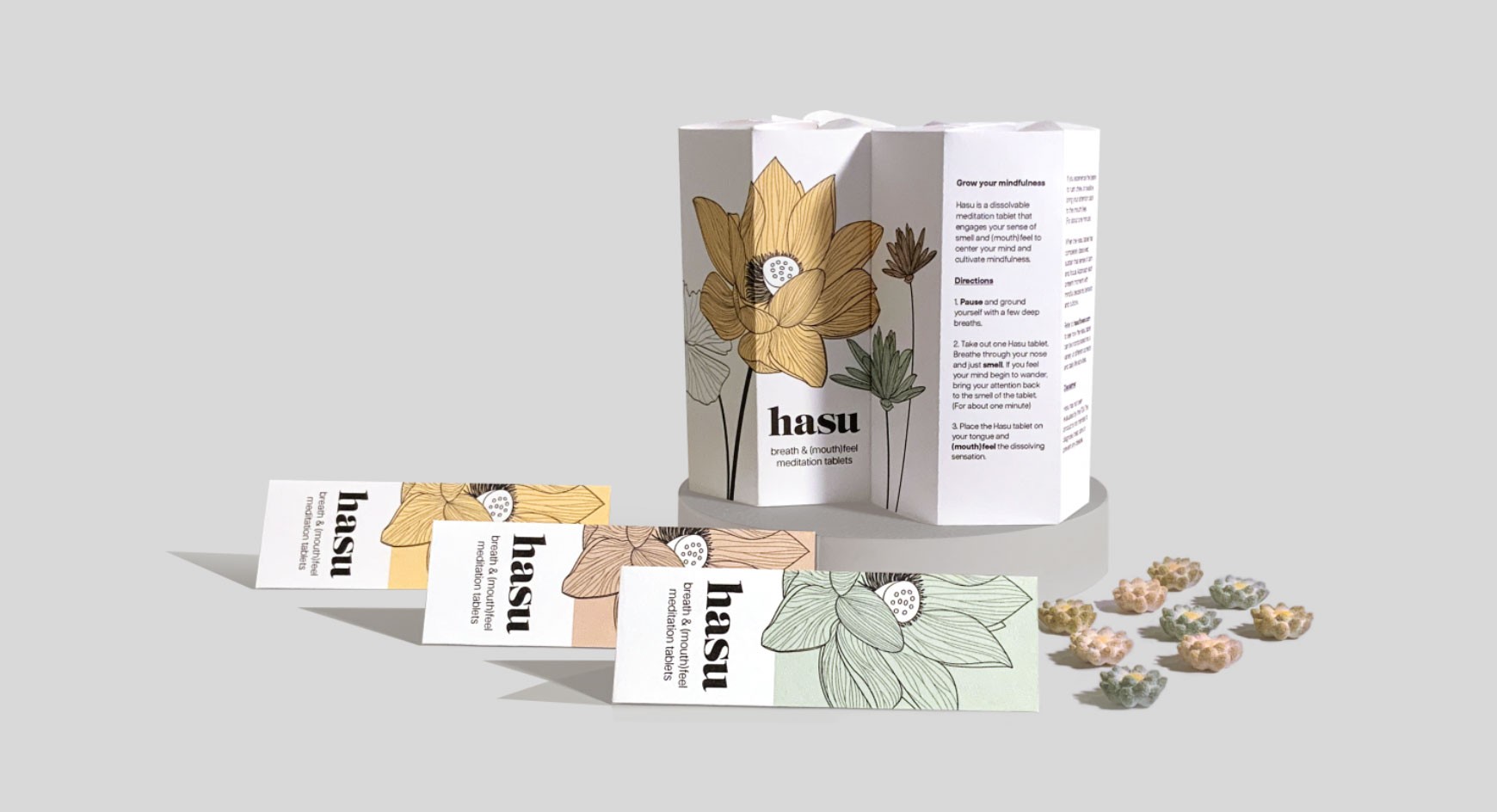Alright – so today we’ve got the honor of introducing you to Bryan Litman. We think you’ll enjoy our conversation, we’ve shared it below.
Alright, Bryan thanks for taking the time to share your stories and insights with us today. Are you happier as a business owner? Do you sometimes think about what it would be like to just have a regular job?
I don’t think for me there was ever such a thing as a regular job. I’ve never been part of a company or project that I didn’t genuinely care about, or where I was doing something simply for a pay check. And when you approach your work that way, there’s no difference between working for someone else’s company or your own, you’re going through the same emotional journey. So to anwer your question, no. I don’t ever think about just having a “regular job.”
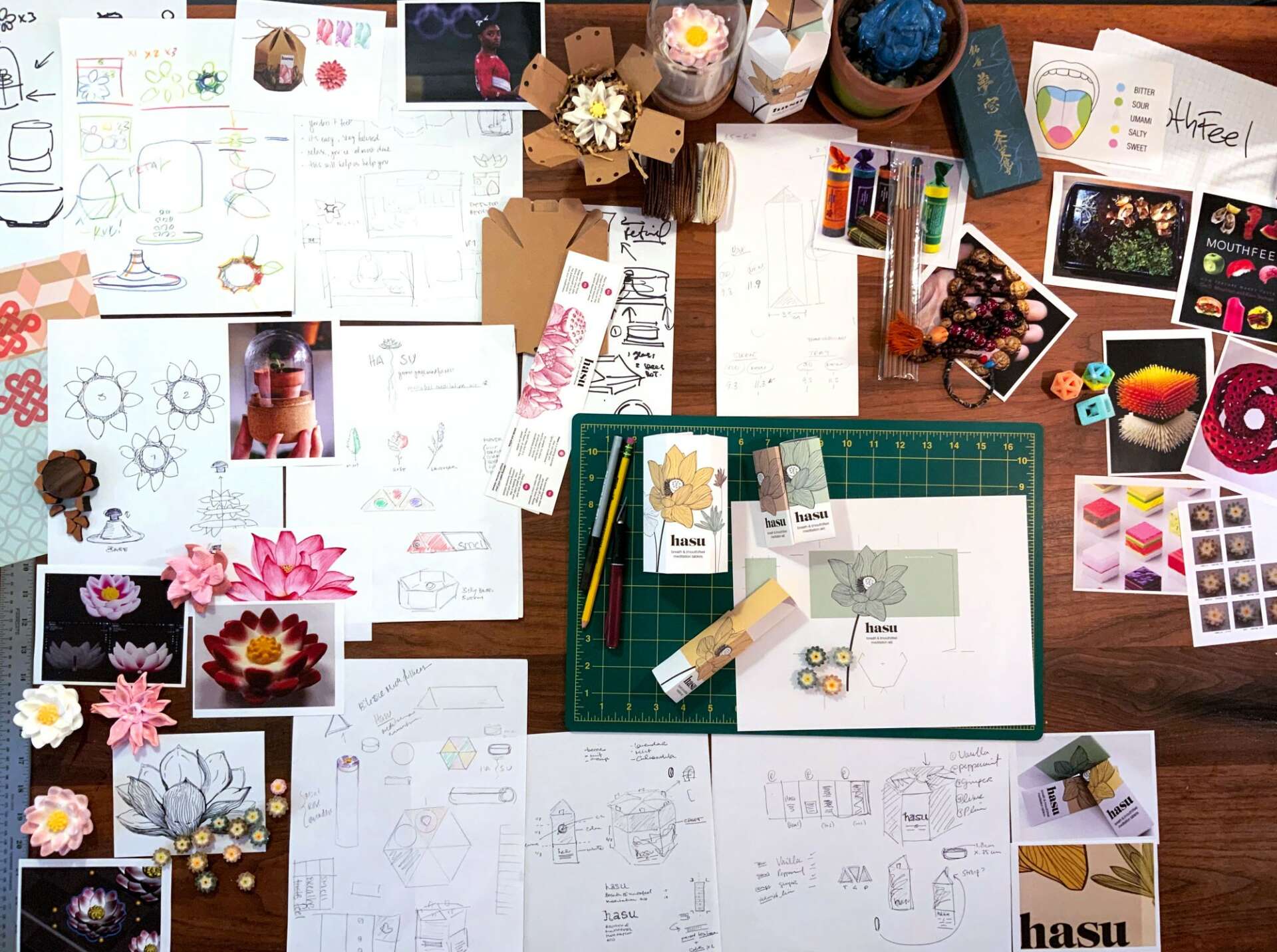
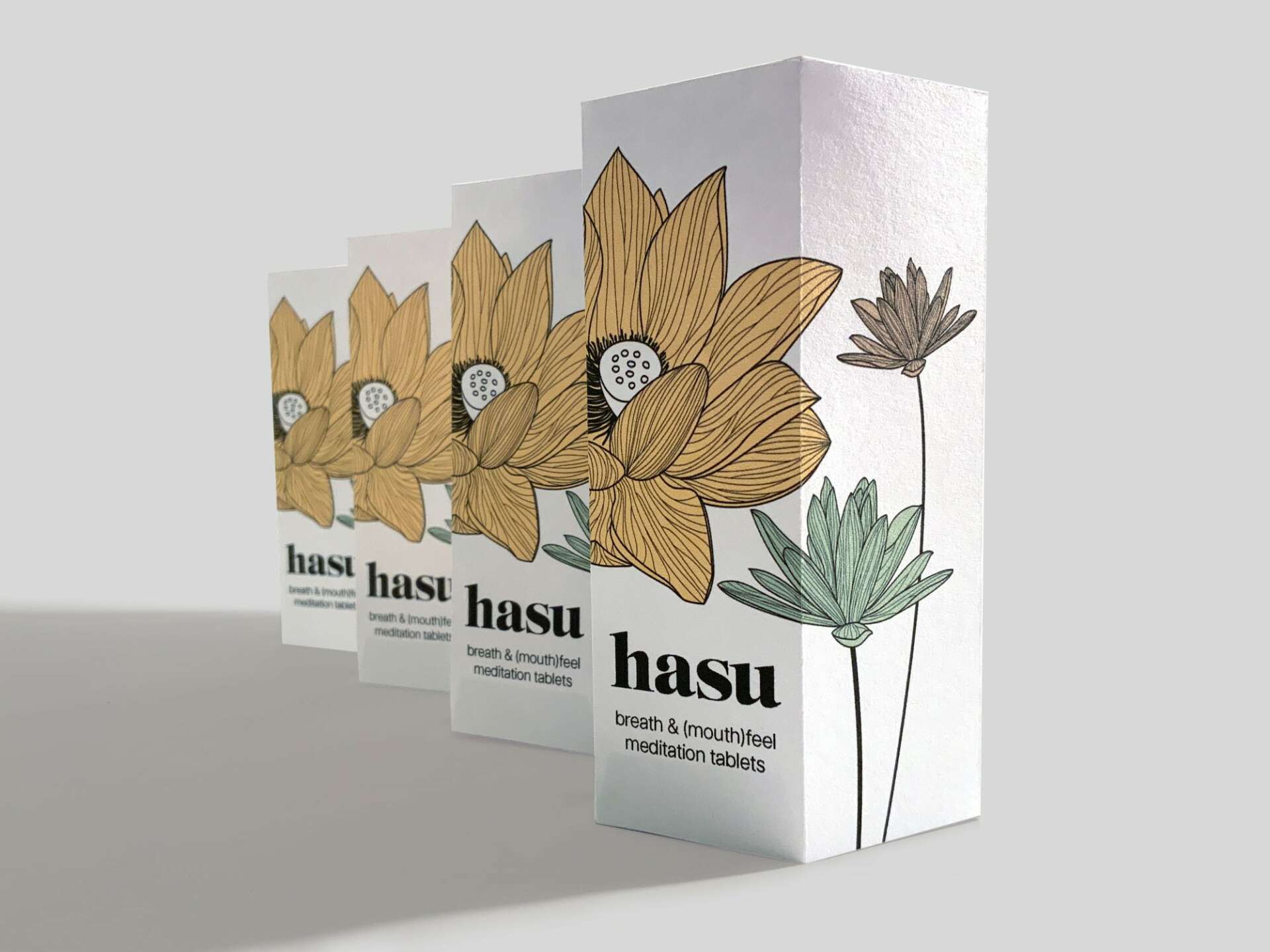
Bryan, love having you share your insights with us. Before we ask you more questions, maybe you can take a moment to introduce yourself to our readers who might have missed our earlier conversations?
I’ve always had an interest in meditation and mindfulness.
For most of my career, I was a film and commercial producer and had to manage stressful work responsibilities and projects, making meditation even more critical in my professional life. So I tried many different ways to integrate meditation practices into my everyday life. I even had meditation trainers come to my hotel to teach me techniques and concepts while on shoots. It was almost a parallel journey to my career.
So while meditation and mindfulness were always part of my life, I saw an increased need and opportunity to help others during the pandemic. Mental health and wellbeing had never been so front and central for everyone than during the pandemic. People were just more isolated, stressed, and everybody was experiencing a significant increase of screen time. And while meditation seemed like a logical way to help people through the pandemic, it didn’t seem like it worked for everybody. So I started to do some research on why people were either not starting or adhering to meditation and mindfulness practices. It became very clear that the barriers were simple but meaningful—People didn’t have the time to practice meditation/mindfulness, or they didn’t have the know-how.
I then embarked on this journey of trying to address those barriers through developing a meditation aid. Something that would lower those barriers for people, and therefore making mindfulness more accessible to all. One of the most important insights I had based on my experience meditating was that mindfulness is directly connected to lowering the amount of brain activity. So I took all that information and leveraged user-centered design to further define the problem, and to better understand the overall benefits and value I wanted to create for my users. We conducted a pilot to see if the product was viable and the feedback was very positive. That’s pretty much how Hasu Flower was born.
Hasu means lotus in Japanese, which is a symbol of meditation and mindfulness. We wanted our product to have the physical shape of a lotus flower and went through many iterations to arrive at the current design of the Hasu tablet. We collaborated closely with a company called Culinary Printworks to develop the Hasu tablets in different shapes, sizes, flavors, and scents.
We are very proud of what Hasu has become and what it provides to our users. It’s a micro-meditation tablet that is easy to integrate in daily activities and other routines, it’s short and and self-guided, and it’s affordable without a need for a subscription. Every design and business decisions we make is in support of making meditation more accessible to all.
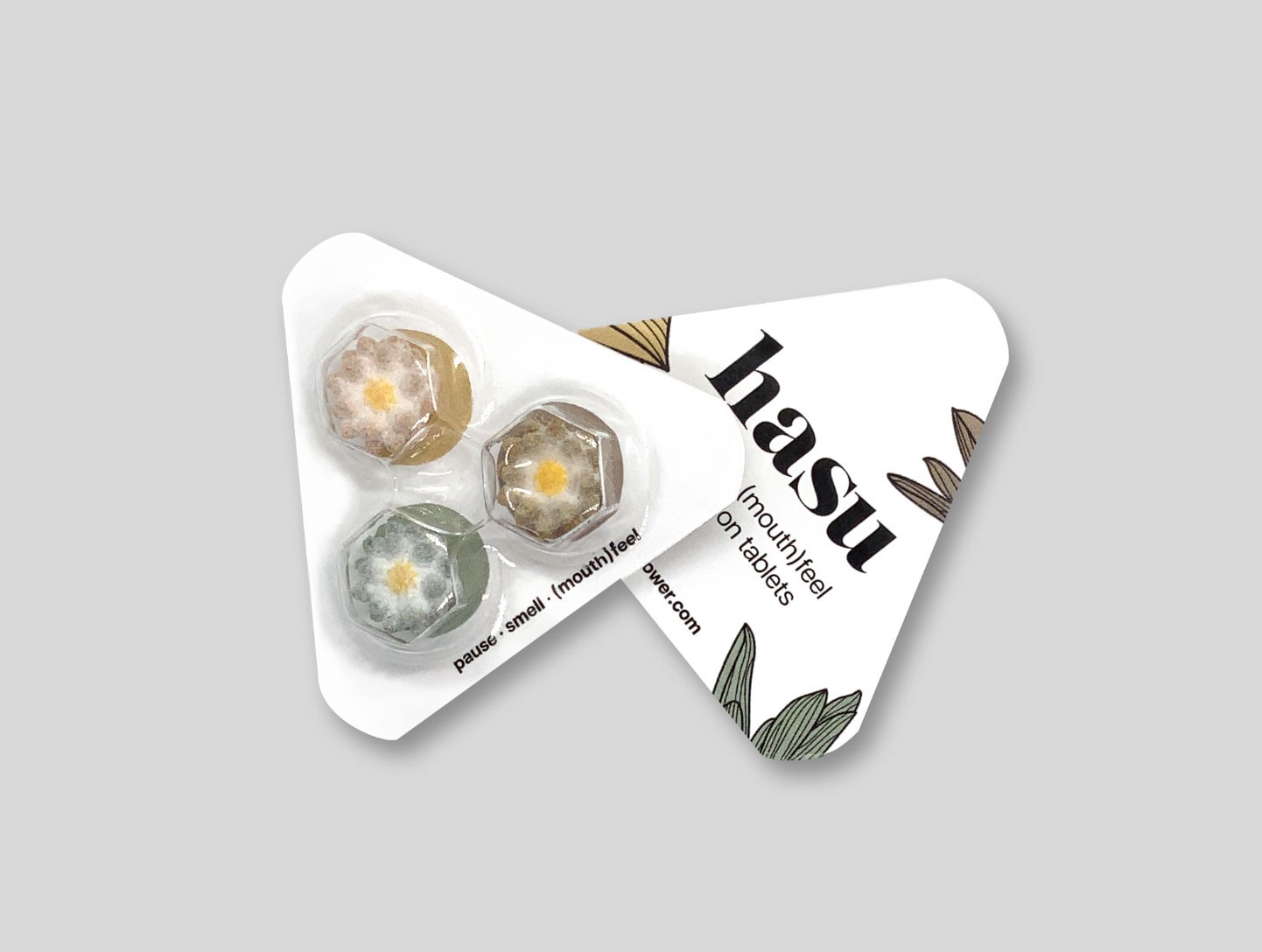
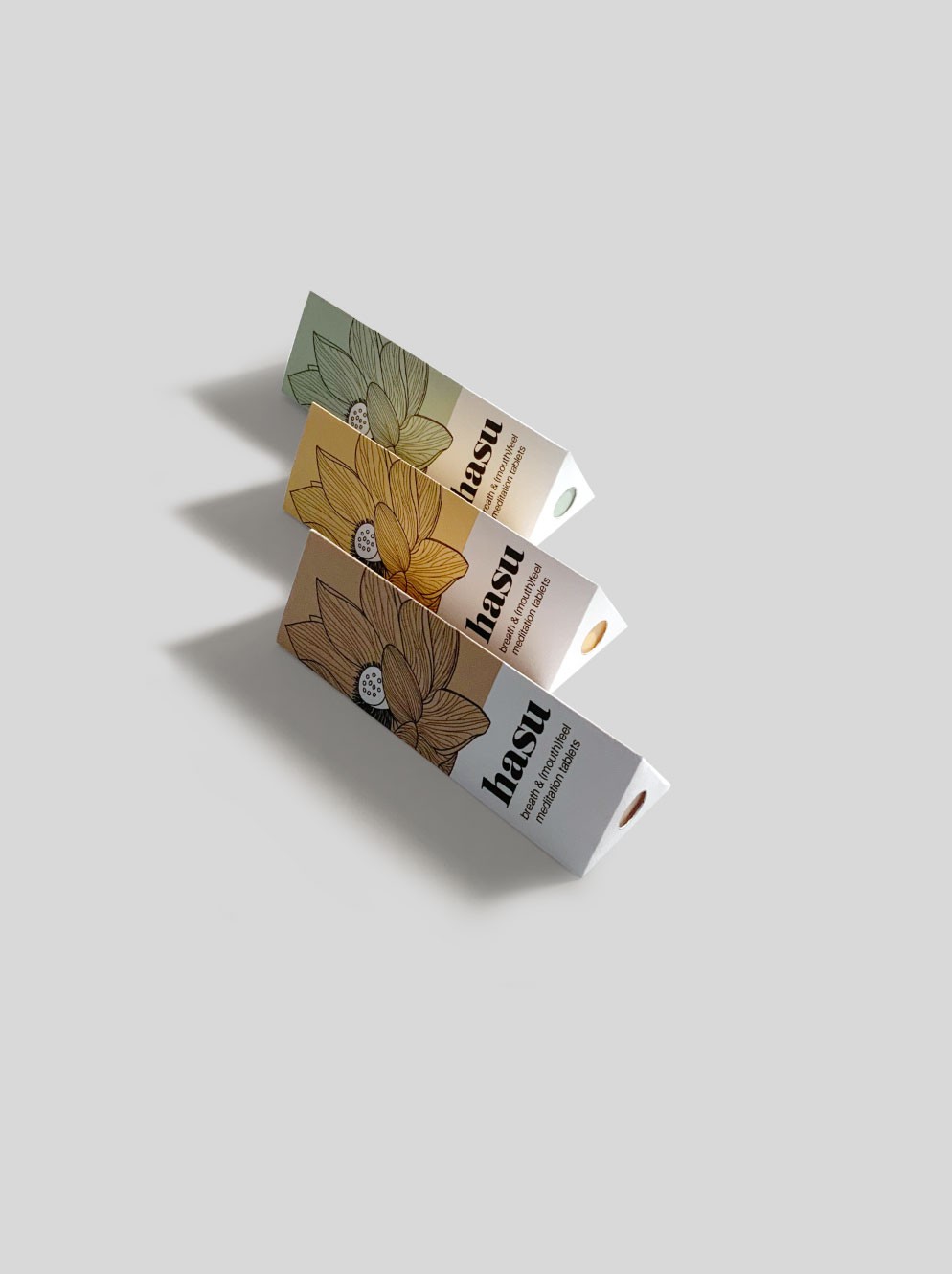
Okay – so how did you figure out the manufacturing part? Did you have prior experience?
We have been collaborating with a food technology company called Culinary Printworks to manufacture our tablets. One of the features of our product is that it needs to dissolve at a certain rate for our users to experience mouthfeel as a way to focus and create a moment of mindfulness. 3D printing technology allowed us to iterate on various aspects of our product such as size, shape, scent, flavors, colors, etc.
As for the manufacturing of our packaging during the earlier stages of our brand, we started small. It was easier to produce and to attract new customers. We called it the Day Pack. Long term, we’ll be trying to find the equilibrium of product cost efficiency and customer demand.
We’d love to hear a story of resilience from your journey.
Yes. I kept every sketch, iteration, versions of the products and packaging over time. If put against a timeline in a chronological order, I think it would speak volume about my resilience and relentless desire of making Hasu everything that it can be. Someone I respect once told me that it doesn’t matter if you’re walking, running, or tripping… as long as you keep moving forward. That philosophy has helped me keep things in perspective when the results aren’t always exactly what I was expecting. It’s given me the resilience to keep moving things forward.
Contact Info:
- Website: www.hasuflower.com
- Instagram: @timeforhasu
- Linkedin: https://www.linkedin.com/company/hasuflower
Image Credits
Hasu Flower


